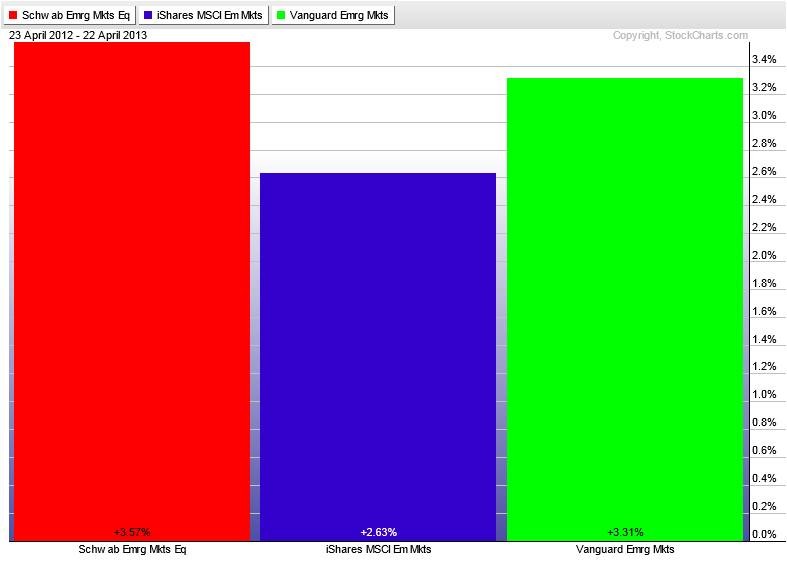6 Important Differences Between Index Funds and ETFs Helping You Make Money
Post on: 12 Октябрь, 2015 No Comment

6 Important Differences Between Index Funds and ETFs
Most investors are familiar with the term ETF but have a limited understanding of what an exchange-traded fund is. There are many similarities between ETFs and index funds. The differences are subtle, but significant.
Characteristics of ETFs:
1. There are no commissions. A few ETFs have a small transaction fee, but its usually less than $10. If you have a ton of money to invest, or if you reallocate often, an ETF will be less expensive to buy and sell. If you hold on to your index fund shares for a long period of time, ETFs offer little advantage in this regard.
2. ETFs have lower expenses. The average index fund has an expense ratio of approximately 0.25%. The expense ratio of the average ETF is roughly 0.05%. Its 5 times more expensive to own an index fund, but its still only 0.2% difference.
3. There are a similar number of index funds and ETFs, but ETFs follow a larger number of indices. Many ETFs cover an index that isnt covered by any index fund.
4. ETFs send the dividends to you rather than reinvest them. Its arguable whether this is an advantage or a hassle. Index funds reinvest all dividends. ETFs hold the dividends until the end of the fiscal quarter. This means the dividends arent doing anything for a few months.
5. ETFs are traded like stocks. You can buy and sell at anytime the market is open. An index fund can only be bought and sold at the end of the trading day. Using an ETF can be more speculative. If an index is rising rapidly during the day, an ETF can be bought to capture that gain. It might be too late by the end of the day with an index fund.
* However, many ETFs are not very liquid. It can take some time to buy and sell shares.
6. ETFs have tax advantages in certain situations. There are ways to receive in-kind redemptions. This permits shares of the ETF to be redeemed for actual shares of stock. This avoids a sale that would trigger a tax action. The taxable turnover is much lower than that found in an index fund.
Which is a better investment?
Analysis by business schools has come to the following conclusions:
1. For the average, passive investor, an index fund is a better choice. After examining all the costs and taxation issues, a study determined that an index fund is a less expensive option for most investors.
2. An ETF becomes a better choice if the investor has at least $60,000 to invest and holds the fund for at least 12 months. It takes $60,000 investing in an ETF to break even on the costs versus an index fund. At this level, an ETF will have sufficient taxation and management fee savings to offset the higher transaction costs.
3. An ETF is a better choice if held for 10 years, provided the investment is at least $13,000. The break-even investment is significantly lower with a longer time horizon.
4. Active traders and passive institutional investors are likely to prefer ETFs. The greater flexibility will appeal to active traders, and the lower costs will appeal to the institutional investors.
ETFs and index funds are fundamentally similar, but the average investor would be better served by an index fund. Its much less expensive to own. However, wealthy individuals and institutional investors will save money by utilizing an ETF. Examine the benefits and the costs of each. Make a decision that supports your investing needs.














